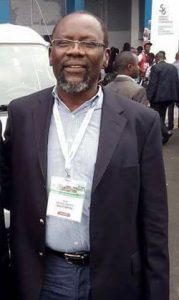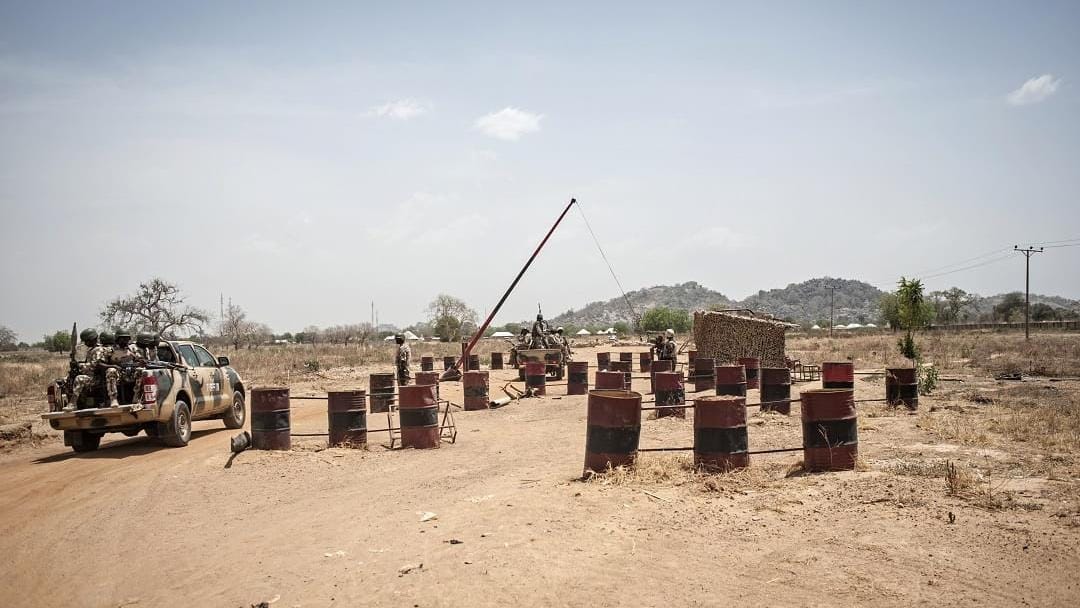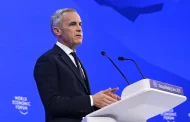By Adagbo Onoja
Dr. Fatima Akilu, the fourth reviewer at the August 19th, 2020 webinar on Raufu Mustapha and Kate Meagher’s edited work Overcoming Boko Haram: Faith, Society and Islamic Radicalisation was the one saying what should have been the hair raising points about Boko Haram for the purpose of policy. Paradoxically, what she was saying is not the sort of thing that would attract much attention in Nigeria where almost everyone has concluded he or she knows who caused BH, for what purpose and all that and there is nothing more to add. That is not the attitude nearly anywhere else where little bits of information are added every now and then for a more complete understanding of what has dominated national and global security politics for much of the post Cold War. And still remains a mystery in so far as there is yet to be a globally accepted definition of the term.

 The Americans appears to have been the smartest in dealing with terrorism, most likely because it has not fought one on American soil. Until then, it doesn’t engage terrorists directly, handing over the war to local groups and putting the CIA rather than the American military in charge of it in the case of Afghanistan. A great power like the US would most certainly not fall into Osama bin Laden’s strategy of entrapping the US and bleeding it in the Middle East. So, they made it a war of intelligence, first and now a negotiating war.
The Americans appears to have been the smartest in dealing with terrorism, most likely because it has not fought one on American soil. Until then, it doesn’t engage terrorists directly, handing over the war to local groups and putting the CIA rather than the American military in charge of it in the case of Afghanistan. A great power like the US would most certainly not fall into Osama bin Laden’s strategy of entrapping the US and bleeding it in the Middle East. So, they made it a war of intelligence, first and now a negotiating war.
In Nigeria, the terrorist challenge is on Nigerian territory. The American advantage of pursuing terrorists in foreign lands was not available to Nigeria. A greatly unprepared state fell to the temptation of scattering the terrorists. Eleven years on, it is what the book under review at the webinar sees as heading towards or already a debilitating stalemate. What is to be done?
The book is calling for a deviation from a security approach to a soft approach which must entail negotiation at some point, concessions based on better understanding among conflict parties towards the possibility of a common ground. Tough luck but it brings to memory the story about an encounter between newly elected Obasanjo and an African leader whose country had been overrun by a guerilla army. The leader’s response to the idea of negotiation was a categorical no. Not after everything the guerrilla army had brought about – destroying, looting, killing, maiming. It was then Obasanjo reportedly told him to think critically because, among others, the guerrilla army can still do more of what he is crediting them with, given what is required to uproot them.
Obasanjo was speaking then and a less complicated case than Boko Haram in Nigeria on which there are claims and counter-claims of complicity and multiple agenda. And where, according to the reviewers, the entire counter-insurgency has become ATM for corruption. Above all, nobody is talking of an overwhelming and complete blitzkrieg that can break the backbone of the insurgency soon.
Soft or hard approach or whichever decision is taken, Fatima’s details would be important. They would be important not in themselves but to the extent that terrorists do not refer to themselves as terrorists, making it important to listen to them talk about who they think they are, why they are in terrorism, if they are thinking in terms of regret and what they make of the entire experience. This had been useful to Western governments in as can be seen in the shifts in prosecuting the Global War on Terror, (GWOT) such as trimming it down to just War on Terror, (WOT). The Nigerian government has grabbed quite a number of Boko Haram commanders and must have had detailed chats with them and must have been using such information in designing its counter-terrorism policies. It is doubtful if the policies are generally understood and accepted across Nigeria, given the observably low believability index of the Buhari regime.
But, what did Fatima Akilu say on the basis of her talking to hundreds of BH actors at all levels – from captured top as well as senior commanders to foot soldiers to all manner of victims. In summary, they complained of the conception of Nigeria in such a manner that excludes ‘them’ and, by implication, lack of opportunities for self-realisation; they spoke about how an Islamic society would give them an authentic society within which they can make their own rules and reach own goals; they spoke about how the botched Sharia shattered all hopes of a possible re-making of society outside of a Caliphate; they were concerned with and rejected the elite culture – corruption, ostentation and indifference; they were concerned with unresolved conflict – not being listened to or being responded to by the state; there is so much moral decay thrown at their face; they spoke about the psychological void they confront – nobody or no role models whose words or carriage served as a beacon that speaks to their heart in the confusing world. This last point was related to how easily the charismatic preachers who emerged quickly became moral, social, political and spiritual heroes. This is because such preachers became the first and only teachers they had and from whom they got any clarifying and unifying messages about things disturbing them.
Dr. Fatima posed the question as to why women join BH voluntarily, linking that to the thesis that women have better prospects for self-actualisation within the movement, with particular reference to power, money and access to status, things they do not get in the larger society where the authority of the state, husbands, partners, fathers, etc prevails.

The late author, Raufu Mustapha

Dr. Kate Meagher, wife of late Raufu and co-author of the book
So, there is a hint that BH treats women better than the larger society. But this is a qualified submission in that it is mostly the women married to the commanders that this applies. The hint is that they are in very privileged position different from if they were in the larger society. Interestingly, a lot of the women who joined voluntarily are from poor backgrounds. But For those taken as slaves, life is hell – sexual and physical abuse, back breaking work, terrifying religious practices and being sold into slavery within and among other jihadi groups.
There is reference to the Palestine issue and the 1991/2003 Gulf War but this was only at the level of the elite insurgents, not middle ranking members. While most of the senior commanders are ageing, many of the senior commanders are very young.
Anyway, this is the self-understanding that underlines the BH insurgency. The push factor for terrorism may be economic but terrorists never pose them in those terms. Rather, they look for what some philosophers call empty signifiers – one abstract identity slogan that is exclusionary. In the case of BH, it got that idiom in politicised Islam thereby excluding all those who would have supported them if they were smart and couched their demands in terms of the universe of the poor majority – Christians, Muslims, pagans and free thinkers.
By presenting the face of an Islamicist insurgency, it has created a wider circle of forces for and against. Dr. Meagher identified how productive the involvement of Niger Republic, Chad and Cameroon but also noted how that has moved things from more pressing issues of poverty. Also mentioned is the involvement of the West and all the sorts of dynamic that creates, some tending to create pervasive incentives within the wider international agenda of shopping for military equipment, aid resources, corruption, who/where gets the military base and so on and so forth. To this would be added the war economy saga and the phenomenon of child soldiers. However, that phenomenon is not called that name here. Rather, it is called “children associated with armed groups”.
Somebody wanted to know if BH is a threat to colonial boundaries. The answer was No because what BH has done is to reject the boundaries, denounce secularity. Someone else wanted to know why there does not appear to be any re-integrative package specifically for women. The answer is there is none. Dr. Fatima thinks it is traceable to the perception that women are not dangerous and to the fact that there are never many women on the policy tables. It went along with the analogy as to whether the state response would have been different if Chibok Girls were Chibok Boys.
Finally, the question: can the military solution alone work or it would have to be combined with other options. Prof Kyari answers that the war against insurgency is driven by the military whose professional line is violence. Even the Operation Safe Corridor is a military run exercise. Well, the military have been able to push the insurgents out, he says, but they are still in a position to take the battle to even the military. As things are now, even if the military succeeds in decapitating the commanders, there would still be the mop up. The mop up would not just be clearing the spaces of the rump of terrorists but the utopia of a Caliphate where they believe life would be more meaningful. His verdict is that either one party is defeated or there is a non-military conclusion. Negotiation, he said, produced the release of some of the Chibok girls and the ones from Dapchi. Dr. Meagher was equally categorical. For her, right now, it is a stalemate. Doing more of the same won’t change anything.
The point about doing more of the same thing is a crucial point. One thing terrorists across the world hate is air strikes on their base. That appears to be the specialty of this campaign. Or that is the one we read about. Two, the Federal Government does not appear to be winning the information war. Neither is the president a communicator nor are his information handlers going beyond grumbling and throwing back rather than analytical. The war information management strategy is lagging behind the society. That is dangerous in a deeply divided society as Nigeria of today where everyone has his or her own idea of the BH insurgency. But as the book is reported to have argued, BH is no longer a problem of the North, Islam or Kanuris anymore. Very few Nigerians have not been affected by the insurgency. The insurgency has grown to encompass local, national and global dimensions helpful only to only a few but hurting majority. Popular understanding of the multiple dimensions is a major and urgent dimension for ending the war.
Some critics would ask whether the five or so conditions that makes negotiation necessary are present now. Two, it needs to be clarified if a debilitating stalemate overrules the kind of crippling military operation that should foreground negotiation. Lastly, why was a counter-hegemonic offensive not mentioned at all by any of the reviewers? The late Prof Nur Alkali was working on something of that nature before his demise. His argument as early as 2012 is that the war actually starts the moment the military cripples the insurgents. Thereafter, selected intellectuals, religious leaders, certain individuals would begin the process of undermining the ideology they were selling to those voluntarily joining them.
All said and done, it is too much of a paradox that BH insurgency would bleed Nigeria to a painful stalemate under the same Buhari who asked an Aljazeera reporter at a wedding in Kano before his election: what is BH? Candidate Buhari was then used to arguing there were two BHs: one by the state and the other one the original insurgency. It would be important for the president to be speaking to those claims of his.
Waiting to read the book!




























